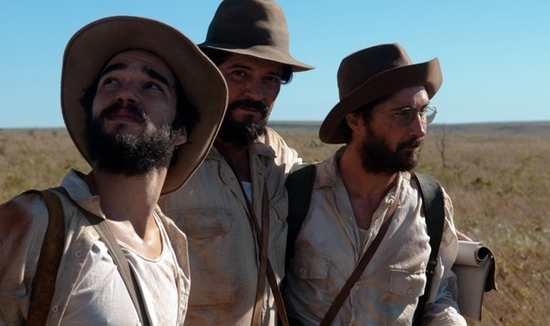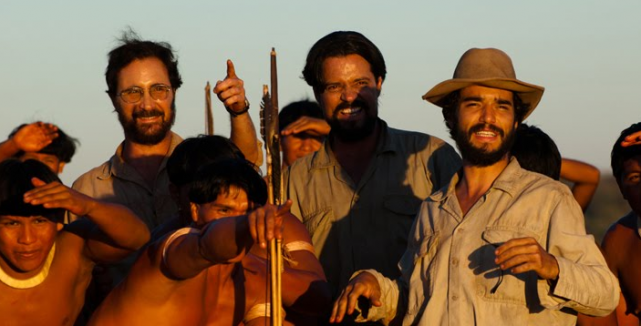Brazil’s tribes at the heart of NEW CAO HAMBURGER MOVIE
Claudio, Orlando and Leonardo Villas Boas are spirited young brothers in search of a path in life in 1943, during a period of historic industrial and agricultural growth in newly-democratic Brazil. They sign up to travel to the Xingu region of the Amazon to help build a landing strip near indigenous lands. But in order to do this, they must gain the natives’ trust.
Xingu, based on true events, is directed by Brazil’s Cao Hamburger. His previous effort The Year My Parents Went on Vacation was met with critical acclaim. Teaming up again with cinematographer Adriano Goldmen, Cao paints a stunning portrait of a time when nature was still untouched, using footage of the Amazon’s rivers and rainforest–the beauty of which might just save this film from itself.

During their travels the three brothers befriend the Xingu, learning their language and somehow coaxing them into allowing “the white men” to build a landing strip. Soon more white men come. They bring with them disease, killing off half the tribe and leading the brothers to defend the natives from the rest of the white people.
While the government continues with its plan to seize tribal land, our three protectors fight tirelessly to maintain the peace with the Xingu. They work with the government on a compromise to relocate all the tribes to a specified parcel of land which becomes known as Xingu National Park.
Xingu unfolds in rapid fashion over decades, using titles to indicate the progression from two years to three and ten years, instantly. This happens far too frequently, which can lead to confusion. The dialog, perhaps due to an issue of translation from Portuguese to English, is often too subtle and confusing. A key scene, in which a character dies is relayed with a phone call, then silence, then the words “his heart…”. And that is all we have to go on. While the viewer’s brain is churning to figure out what just happened, we end up lost in a thickened plot. This, combined with the awkward title placement, makes for a murky and disorienting film. This isn’t a symptom of just an overwrought plot. Even in the beginning of the film when two of the brothers are standing in line to sign up to go into Xingu, they try to pass themselves off as illiterate–the reason for this still escapes me.
Convincing performances coupled with breathtaking cinematography are Xingu’s saving graces; the film is otherwise carelessly glued together and burdened with subpar writing. And yet, aside from these issues, the film efficiently documents how these three brothers selflessly devoted their lives to helping a powerless peoples and develop the largest national park in Brazil.
The story ends mostly well for everyone involved, which is much more than could be said for their allies to the north in their struggle for land with indigenous people.
Xingu was a story that needed to be told. I just wish it had been done more clearly and concisely.
XINGU will be shown as part of the Tribeca Festival, April 18-29.

On set, Xingu
news via inbox
Nulla turp dis cursus. Integer liberos euismod pretium faucibua




I couldn´t agree more !The director had a delicious puzzle on his hands-a real tale,a real story and he messed it up!I believe he got pressed by the regions´actual difficulties and tried to rush the film!What a pity!Just read an actor mentioning the climate,the distances,etc…but then,what that heck,right? The script failed and many little details got on the way.For instance,cigarettes with filter that Claudio constant smokes,wasn´t avaiable in Brzil so easily by the 40´s and people used to tap a cigarret on a book of matches and then lit it up.Everyone did that!Plus,it was the used way to remove the tobacco left in the mouth…Also,in the beginning,when they first encounter the natives,I saw probably crew people in the back amidst the trees.Got shocked by that!
Cao Hamburger could have been more in control.